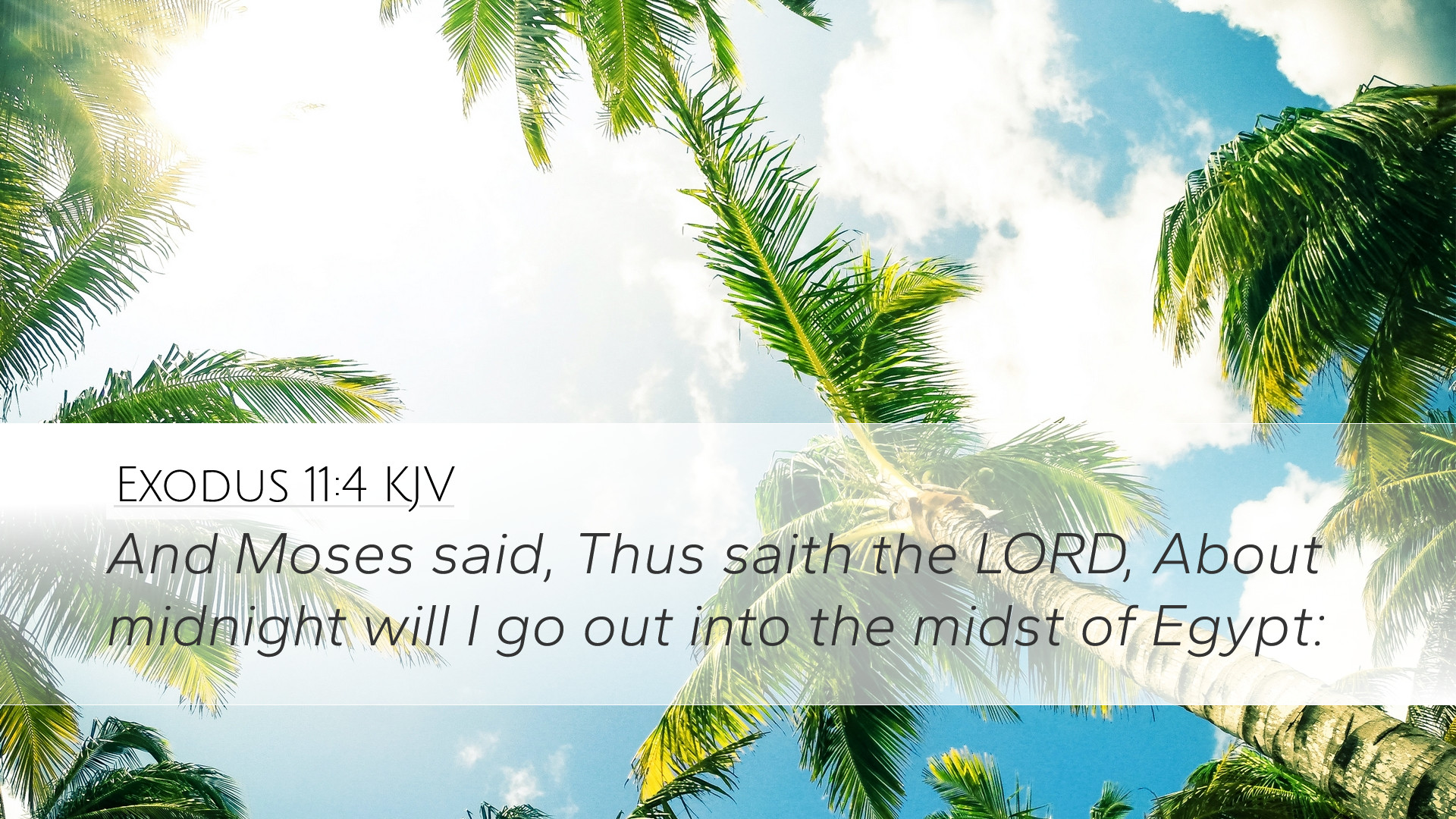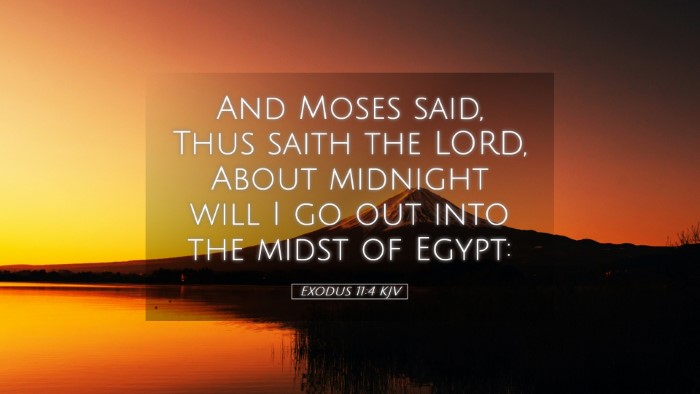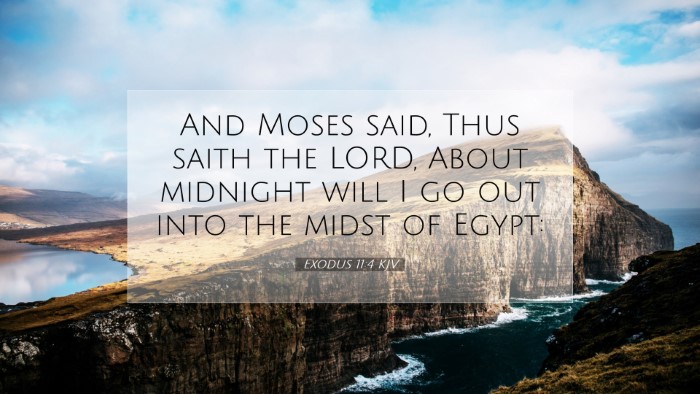Commentary on Exodus 11:4
Bible Verse: Exodus 11:4 - "And Moses said, Thus saith the LORD, About midnight will I go out into the midst of Egypt."
Introduction
This profound verse occurs within the context of God's final warning to Pharaoh regarding the impending tenth plague that will strike Egypt. The significance of this declaration by Moses carries theological, historical, and practical implications for understanding God’s sovereignty and His dealings with nations and individuals.
The Authorship and Context
Moses, as the author of this Pentateuchal text, delivers the message with authority, sanctioned by the Lord. This proclamation is given at a critical moment—moments before the culmination of God's judgment upon the stubbornness of Pharaoh and the disobedient Egyptians.
Theological Insights
This verse emphasizes a few major theological motifs:
- God's Sovereignty: The statement "Thus saith the LORD" establishes God's absolute authority over creation. Moses, highlighted as the mouthpiece of God, denotes the direct communication from the divine and underlines that the events about to unfold are not random but orchestrated by divine will.
- Judgment and Grace: Despite God's impending judgment, there remains an element of grace. This particular plague serves as the final opportunity for Pharaoh to repent. God's actions, while severe, are imbued with a call to recognition of His power and sovereignty.
- The Midnight Moment: The choice of midnight as the time for God’s judgment is significant. It symbolizes the height of darkness—both literally and metaphorically—the opportune moment for divine intervention. God acts decisively in this dark hour, reflecting His power to deliver or to destroy.
Insights from Public Domain Commentaries
Matthew Henry's Commentary
Matthew Henry elaborates on the gravity of God's words spoken through Moses, indicating that the announcement of the coming plague is not merely a physical expression of judgment but a spiritual warning. He reflects on God's consistent pattern of mercy interwoven with judgment, emphasizing that every act of judgment is also an invitation to repentance.
Albert Barnes' Notes
Albert Barnes highlights the phrase "I will go out into the midst of Egypt" as illustrating God's personal involvement in the judgment process. He argues that this portrays God as not a distant observer but an active participant in the events that transpire, reiterating the intimacy of God's engagement with His people and the seriousness of sin among the Egyptians. Barnes also makes note of the specificity of "midnight," which reinforces the notion that God's timing is deliberate and purposeful.
Adam Clarke's Commentary
Adam Clarke offers additional observations on the implications of this event, providing a cultural and historical context. He discusses how the Egyptians deified their own safety and prosperity, and how this coming plague would dismantle their false security systems. Clarke draws attention to the heavy spiritual implications for the Israelites as well, emphasizing that while they too lived in the land of Egypt, God's deliverance was assured, signifying a new beginning for His people.
Practical Applications
The implications of this verse are radical and multifaceted for contemporary readers, particularly pastors and theologians:
- Encouragement in Trials: Just as the Israelites faced uncertainty amidst the plagues, modern Christians are reminded that God operates within historical moments, providing certainty in uncertain times.
- Call to Obedience: This passage invites self-examination about personal and communal obedience to God. It challenges readers to reflect on the obedience of the Israelites compared to Pharaoh’s rebellion.
- Awareness of God's Judgment: The stark reality of God's judgment emphasizes the necessity of evangelism and the proclamation of the Gospel. The church must be vigilant in calling sinners to repentance before the ultimate day of reckoning arrives.
Conclusion
Exodus 11:4 stands as a pivotal verse that succinctly encapsulates the themes of divine judgment, mercy, and historical intervention. The insights from Matthew Henry, Albert Barnes, and Adam Clarke—seasoned with theological reflection—offer profound wisdom for pastors, students, theologians, and scholars alike. In a world often shrouded in darkness, God’s voice rings clear, calling His people to acknowledge His sovereignty and to respond to His warnings with faith and obedience.


